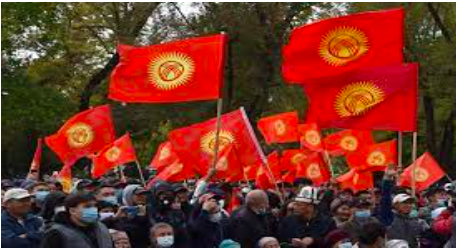“Dhallywood”
Posted on : February 3, 2020Author : AGA Admin

The cinema of Bangladesh is the Bengali-language film industry based in Dhaka, Bangladesh. It has been a major film industry since the early 1970s and is frequently referred to as “Dhallywood” which is a hybrid of the words Dhaka and Hollywood. The dominant style of Bangladeshi cinema is melodramatic cinema, which developed from 1947 to 1990 and characterizes most films to this day. Cinema was introduced in Bangladesh in 1898 by the Bradford Bioscope Company, credited to have arranged the first film release in Bangladesh. Between 1913 and 1914, the first production company, Picture House, was opened. A 1928 short silent film titled Sukumari (The Good Girl) was the first Bengali-produced film in the region. The first full-length film, The Last Kiss, was released in 1931. Following the separation of Bangladesh from Pakistan, Dhaka became the center of the Bangladeshi film industry, and has generated the majority share of revenue, production and audiences for Dhallywood films. The Face and the Mask, the first Bengali-language full-length feature film of Bangladesh was produced in 1956. During the 1970s, many Dhallywood films were inspired by Indian films, with some of the films being unofficial remakes of those films. The industry continued to grow, and many successful Bangladeshi films were produced throughout the 1970s, 1980s and the first half of the 1990s. Directors such as Fateh Lohani, Zahir Raihan, Alamgir Kabir, Khan Ataur Rahman, Subhash Dutta, Ritwik Ghatak, Ehtesham, Chashi Nazrul Islam, Abdullah al Mamun, Sheikh Niamat Ali, Gazi Mazharul Anwar, Tanvir Mokammel, Tareque Masud, Morshedul Islam, Humayun Ahmed, Mostofa Sarwar Farooki, Nurul Alam Atique Zahidur Rahim Anjan, Ashique Mostafa, Khijir Hayat Khan, Kamar Ahmed Saimon, Rubaiyat Hossain, Amitabh Reza Chowdhury, Bijon Imtiaz, Fakhrul Arefeen Khan, Giasuddin Selim, Dipankar Sengupta Dipon and others have made significant contributions to Bangladeshi mainstream cinema, parallel cinema, and art films. Some have also won global acclaim. Internationally acclaimed Bangladeshi films include, Zahir Raihan‘s Stop Genocide (1971); Ritwik Ghatak‘s A river called Titas (1973); Sheikh Niamat Ali and Moshiuddin Shaker’s Surjo Dighal Bari (1979); Tanvir Mokammel‘s Hooliya (1984), Nadir Naam Modhumati (1995) Quiet Flows the River Chitra (1999), Lalsalu (2001) and Lalon (2004); Morshedul Islam‘s Agami (1984), Chaka (1993), Dipu Number Two (1996), Dukhai (1997), Duratta (2004) and Amar Bondhu Rashed (2011); Tareque Masud‘s The Inner Strength (1989), Song of Freedom (1995), Story of Freedom (1999) and The Clay Bird (2002); Humayun Ahmed‘s Aguner Poroshmoni (1994) and Shyamol Chhaya (2004); Abu Sayeed‘s kittonkhola (2000), Shankhonad (2004), Rupantor (2008); Enamul Karim Nirjhar‘s Aha! (2007); Golam Rabbany Biplob’s On the Wings of Dreams (2007); Mostofa Sarwar Farooki‘s Bachelor (2003), Third Person Singular Number (2009), Television (2013) and No Bed of Roses; Tauquir Ahmed‘s Joyjatra (2004) and Oggyatonama (2016); Rubaiyat Hossain‘s Meherjaan (2011) and Under Construction (2016); Kamar Ahmed Saimon‘s Are You Listening! (2012); Zahidur Rahim Anjan‘s Meghmallar (2014); Aung Rakhine’s My Bicycle (2015); Bijon Imtiaz’s Matir Projar Deshe-Kingdom of Clay Subjects (2016), Amitabh Reza Chowdhury‘s Aynabaji (2016) etc. These films won many international acclaims introducing Bangladeshi films to a wide international audience.




